Sandwiched between the San Jacinto and San Andreas fault regions, the Imperial Valley is no stranger to water. Periodically, on a geological scale, the mighty Colorado River diverts into the valley creating a large landlocked body of water. When cut off, the sea evaporates, leaving a dry, desolate landscape. Most recently, the sea was erroneously filled in 1905. Spring flooding broke the banks of irrigation canals under construction at the Imperial Dam near Yuma. For two years water poured into the valley creating the stunning but doomed 400 sq. mi Salton Sea. While taking a dip in the sea isn’t an option anymore, we found lots of fabulous adventures anyway!
Salton Sea’s northeastern shoreline ISN’T SAND!
Our first stop was Salt Creek Beach on the northeastern shore of the Salton Sea to take in the morning views. With just a handful of campsites occupied, there was plenty of parking so we could explore. Surprisingly, several state park campgrounds still surround the lake for adventurers who like to camp off the grid.
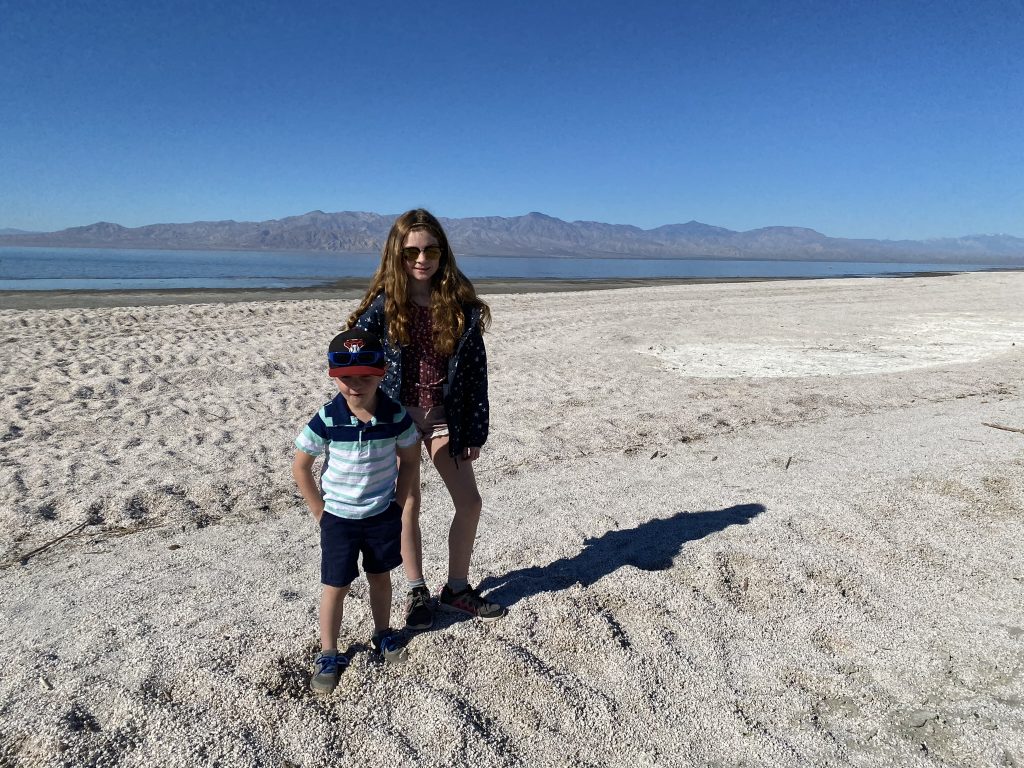
Immediately, we were caught off guard by the sound and texture of the “sand”. We joked that it looked like we were walking on teeth. But upon examination we realized they were actually dried barnacle shells! Apparently, they are one of the most populous of the few species still able to live in the Sea. Walking on the barnacles was definitely surreal, and the view of the valley was top notch.
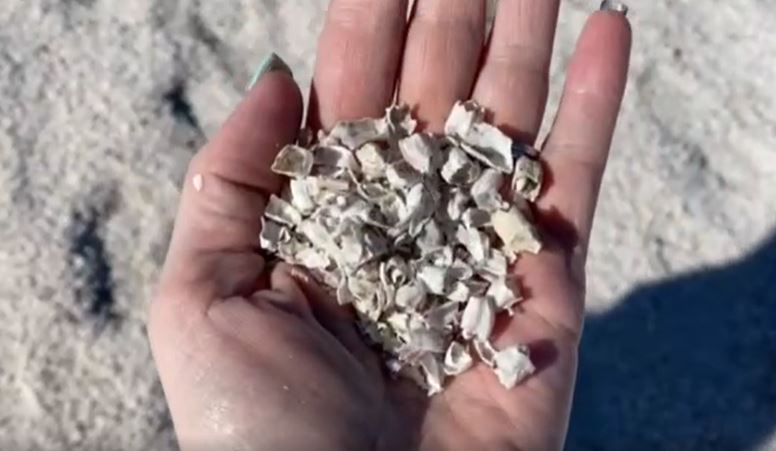
When we approached the shore, we noticed a gross foamy sludge along the waterline. The accompanying unpleasant aroma apparently wafts all the way to Los Angeles occasionally! After a bit of research, we discovered it was just one piece of the very sad story of the entire area.
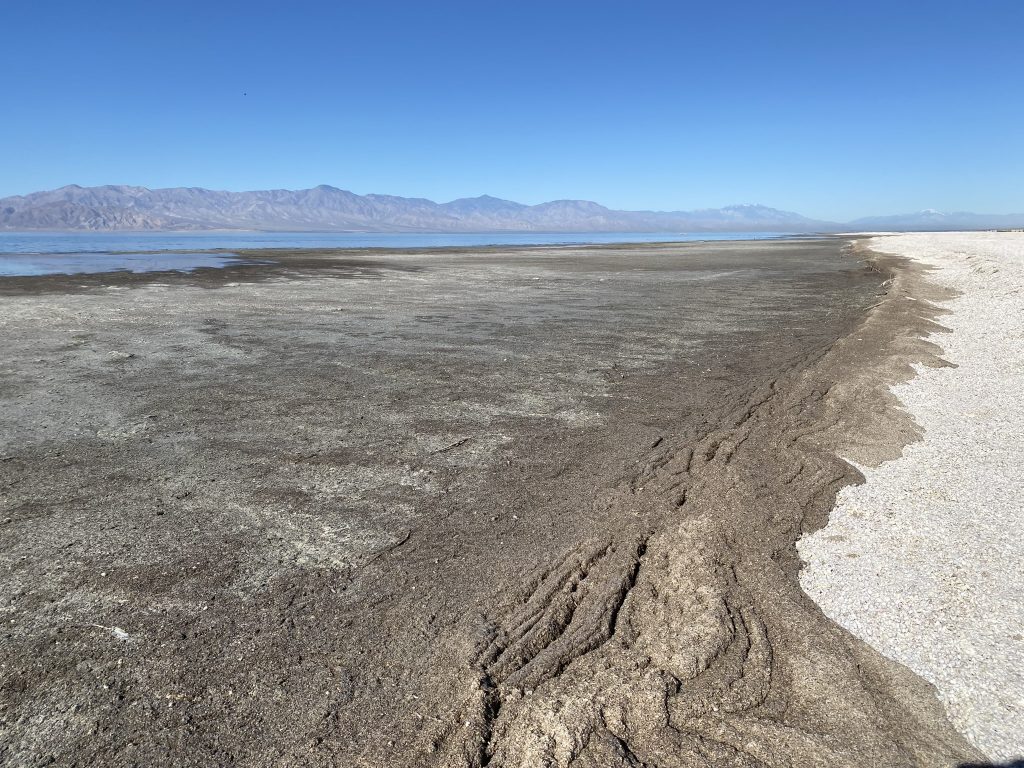
Look, don’t touch the Salton Sea (science alert)
Life has a way of finding water. Not only did the Colorado River bring fish to the basin when it flowed in, the flight paths of birds and interest of humans followed as well. After two years, the river was diverted back to its natural flow south into the Sea of Cortez, Mexico cutting off the sea.
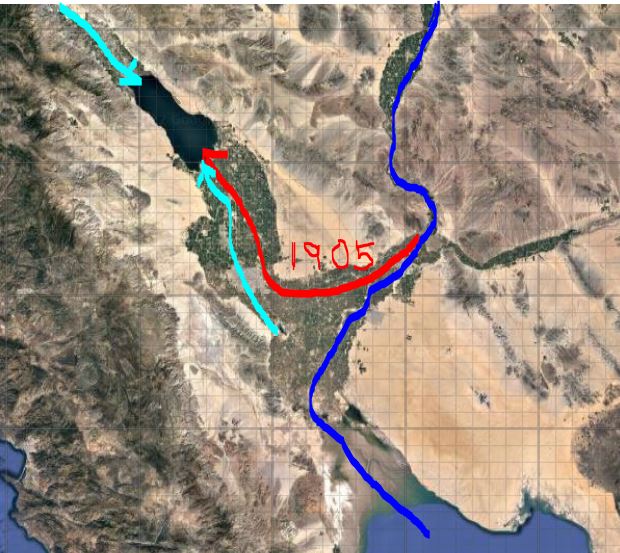
Local runoff and the Colorado’s irrigation allotment couldn’t offset the evaporation power of the Sonoran Desert. Just becoming ever saltier (currently saltier than the ocean) while shrinking would have been a healthy death for the sea. But with the chemical age of the mid-1900s, pesticide and fertilizer in the runoff began to throw the sea’s pH into a tailspin.
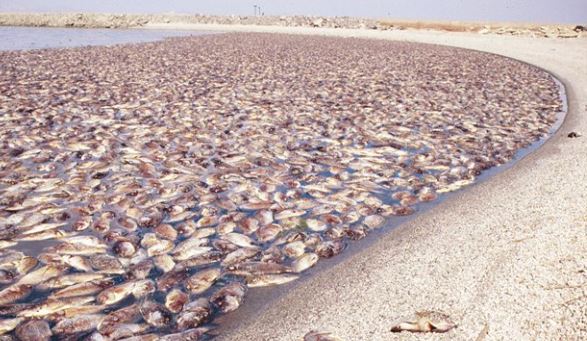
Massive die offs of fish and birds have periodically washed ashore for decades. Multiple species of algae now flourish, which along with 3 identified toxins, make the sea a terrible place to take animals or even attempt to go swimming since the early 1980s. Sadly, for the people who built their lives around California’s largest and once thriving lake, the shoreline has collapsed into pseudo-ghost towns.
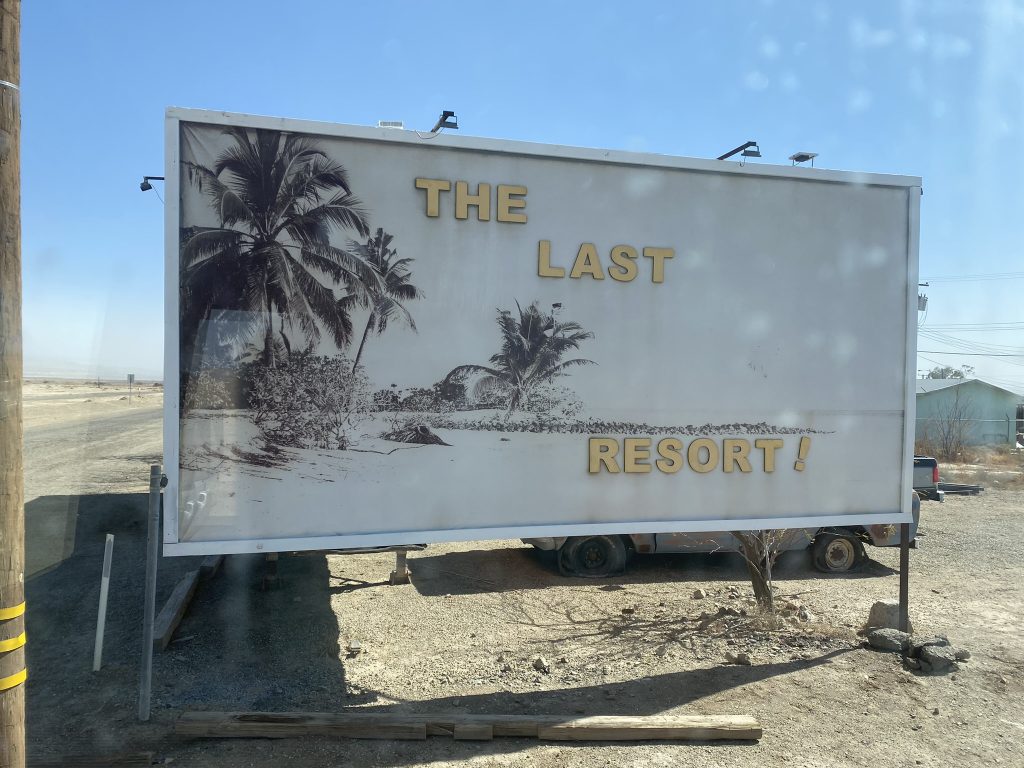
Bombay Beach: Skeleton of the Salton’s Golden Age
For the few decades between the Salton Sea’s creation and the age industrial farming, the slightly increasing salinity wasn’t seen as a huge issue. Developers began building resorts and people flocked to the beautiful shorelines free of seaweed and jellyfish. Long and shallow, the lake was the perfect destination for speed boating and waterskiing.
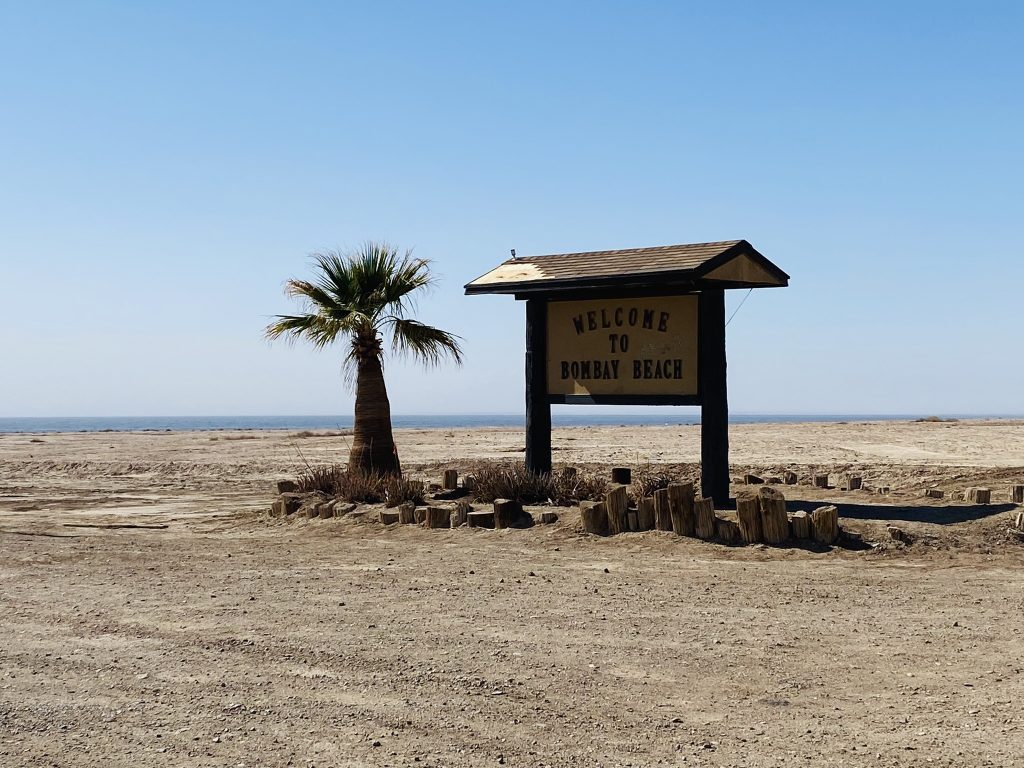
The entire Palm Springs area became the place to see and be seen in the 1950s and 60s. Over 100 miles of shoreline is sprinkled with campgrounds and hotels from this prosperous period, but no place illustrates the magnitude of the decline quite like Bombay Beach.
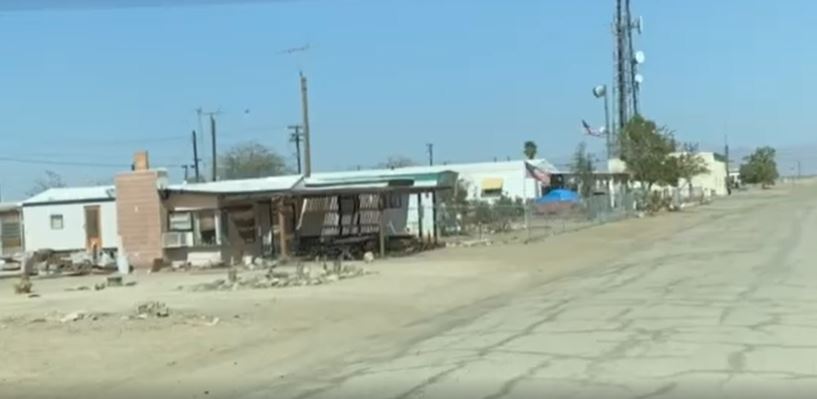
As soon as we turned off main road, we realized this was not a luxurious resort town anymore. With roads full of potholes, yards heaped with trash and burned out, graffitied houses, Bombay Beach has become a very different place than it was intended.
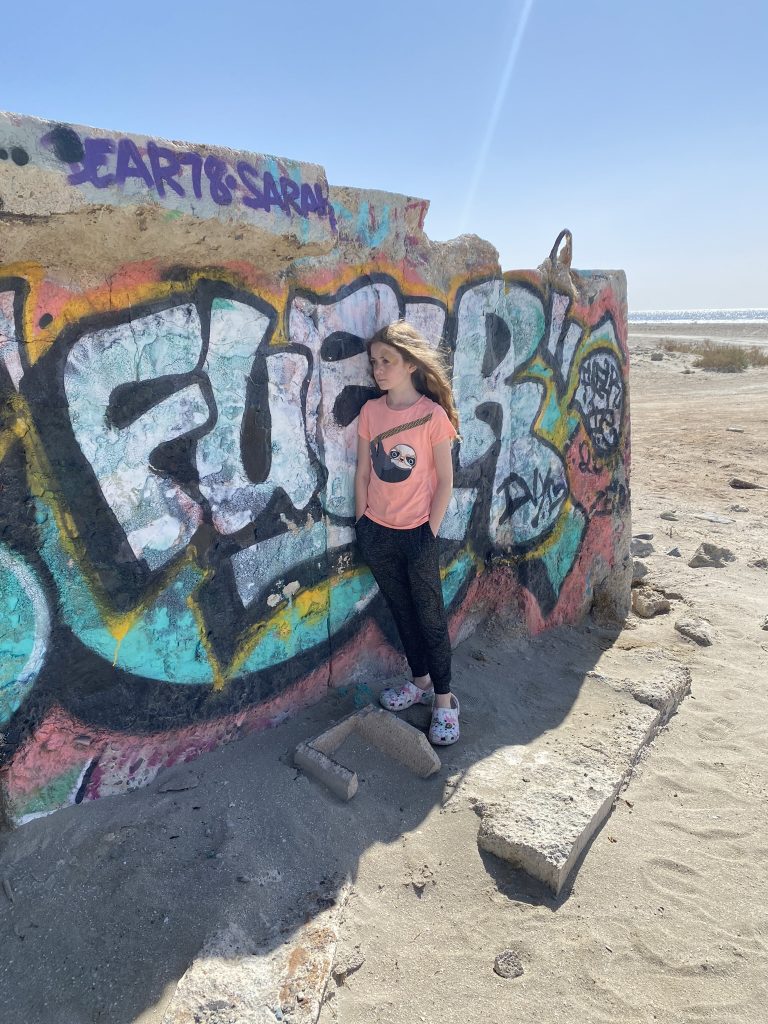
We parked our motorhome as close to the beach as we could and proceeded to the “ruins”. The sea has evaporated so much that visitors use the sun hardened beach as a runway. Located so far from the present shoreline, it took us about 10 minutes to identify the mysterious hole surrounded by a wall as the marina and jetty of yore.
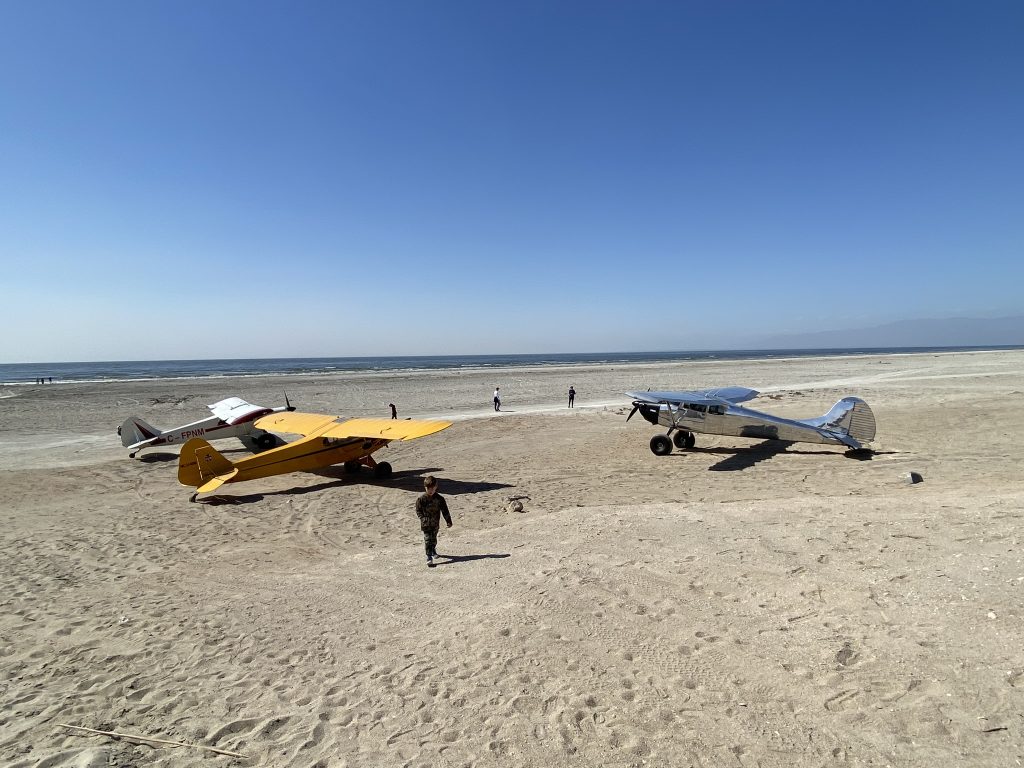
Chunks of rebar and concrete are the only remains of the main resort. Some have been repurposed into interesting graffiti adorned art installments enjoyed by photogs. The pieces are scattered widely over the “beach”, so we only took in a few before piecing out of this almost ghost town.
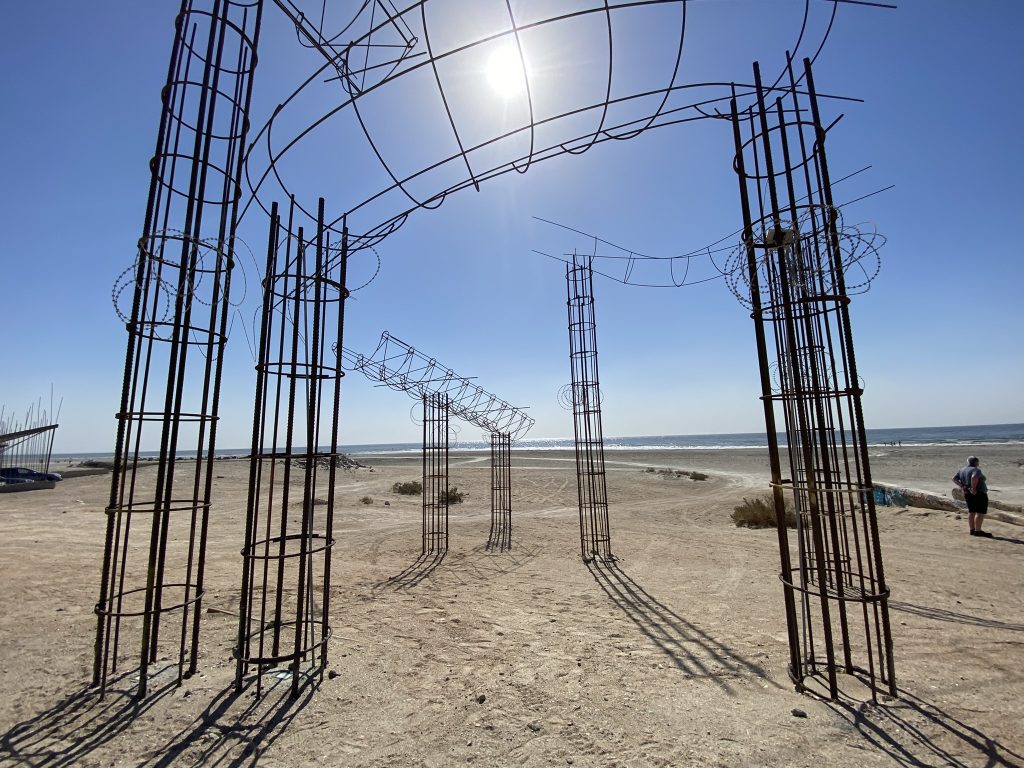
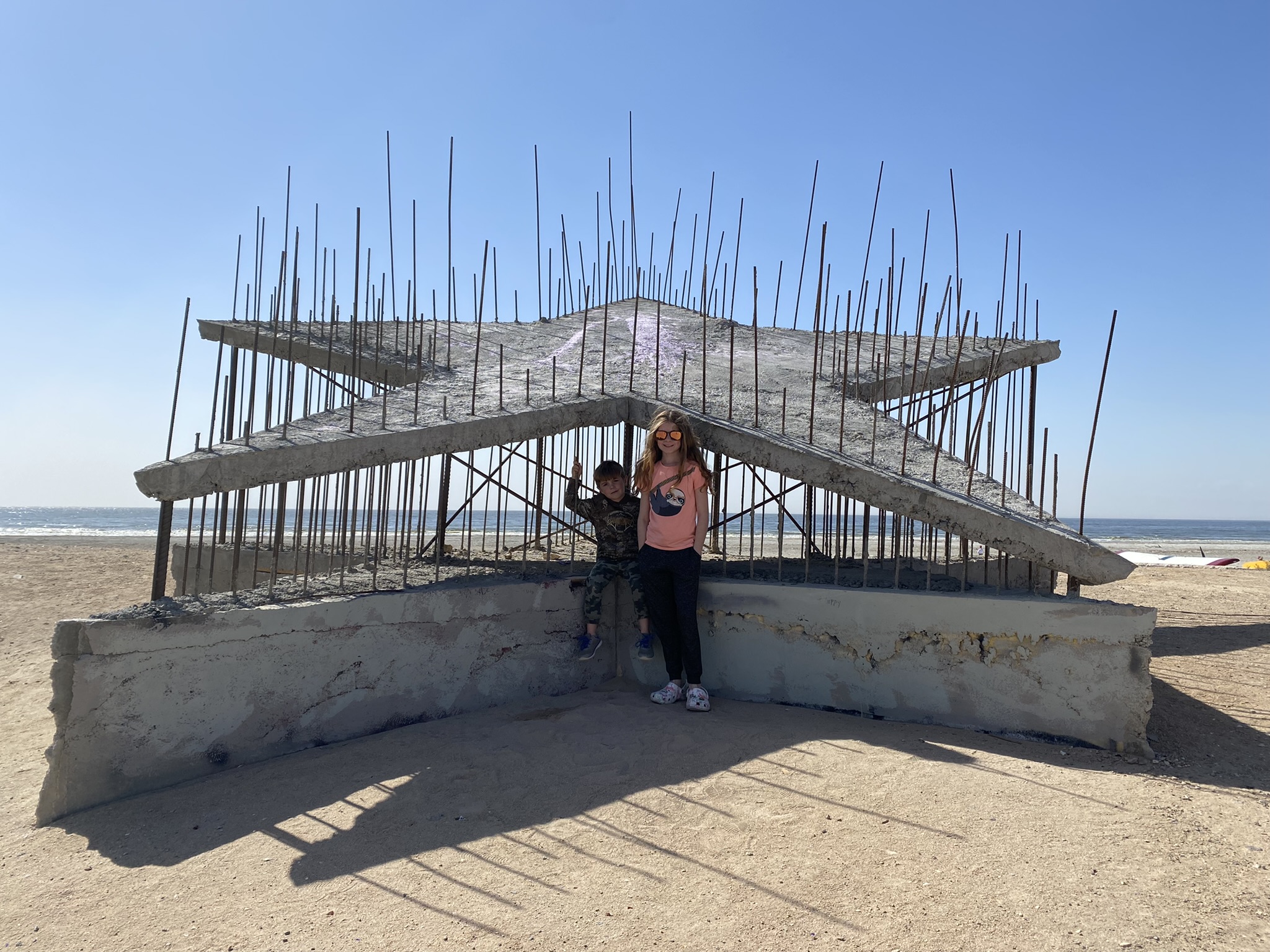
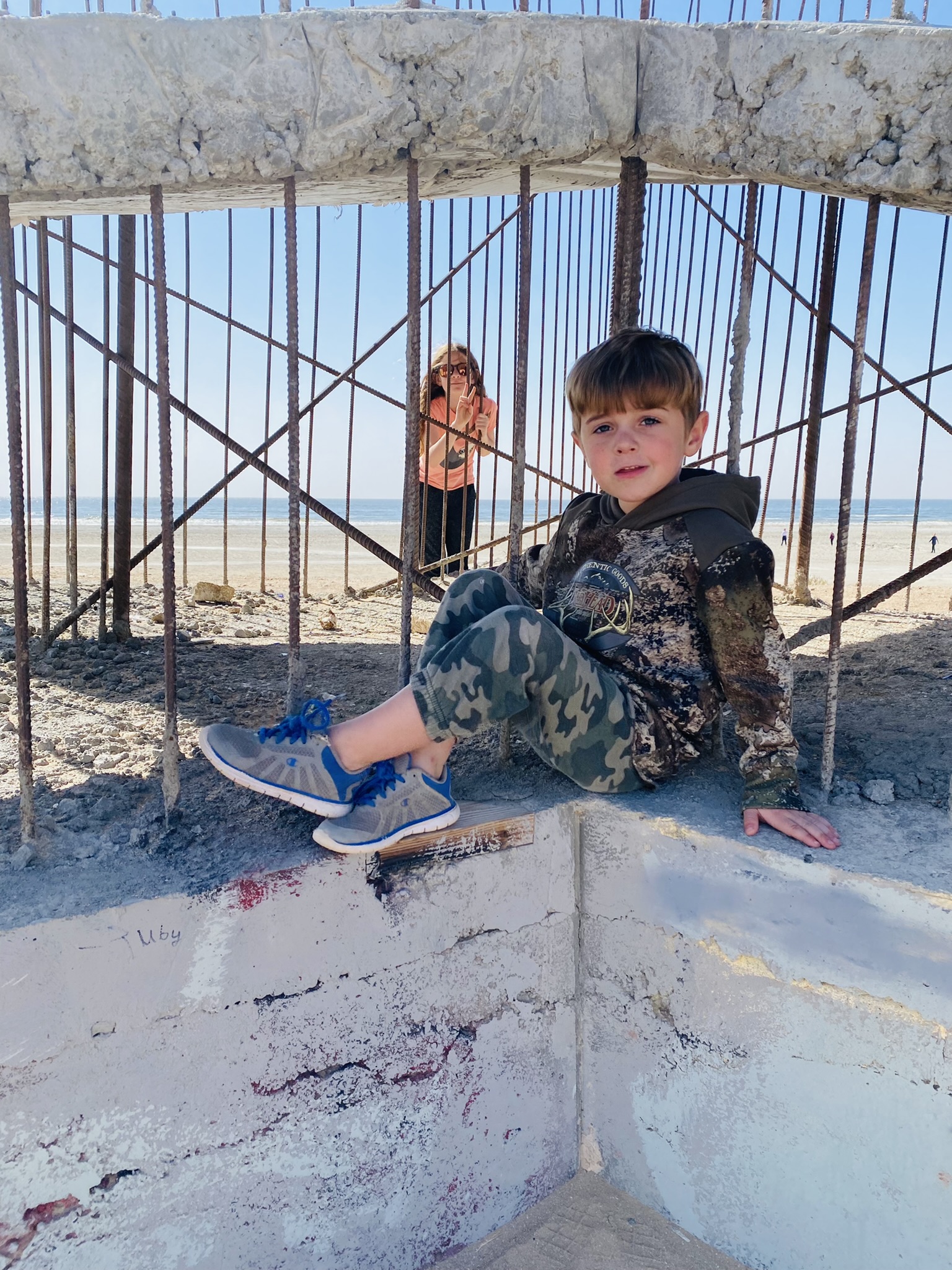
Another way of life at Salvation Mountain
Like many works of art, Salvation Mountain was not Leonard Knight’s original vision. A fourteen-year mission to build a hot air balloon proclaiming “God is Love” ended in failure at Slab City. Defeated, he started building the original mountain from junk covered in sand and salvaged paint. After it’s collapse from excessive sand in the structure, he improved his technique and began to build the work of art visible today.
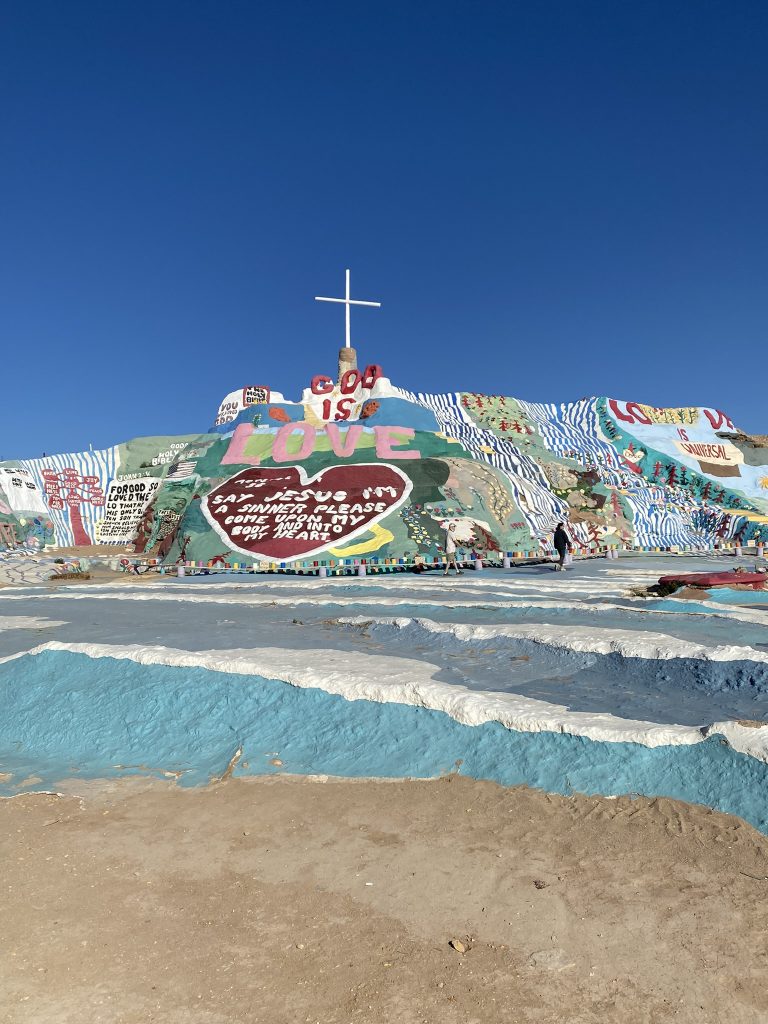
I would recommend visiting in the morning as the afternoon sun on the western facing slope was almost blinding. The spirit lifting mountain truly is a striking contrast to the barren landscape surrounding it. We marveled at Knight’s use of beautiful colors and interesting textures to create an other-worldly experience. It’s hard to believe that the entire thing is made from rubbish, donations and sand!
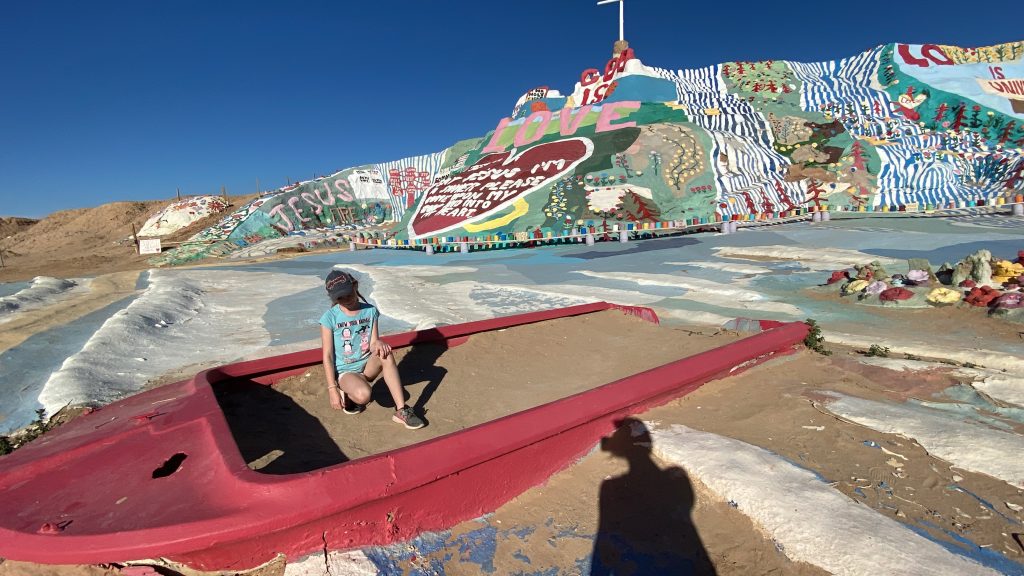
After almost three decades growing his creation, Leonard passed away in 2014. Complimentary brochures at the site provide some context into his vision. While dropping off our donation, we visited with an artist and his dog who continue to provide the constant painting and filled required to maintain the site against the harsh desert climate. He told us that the site had been deemed a National Treasure by the US Congress in 2002!
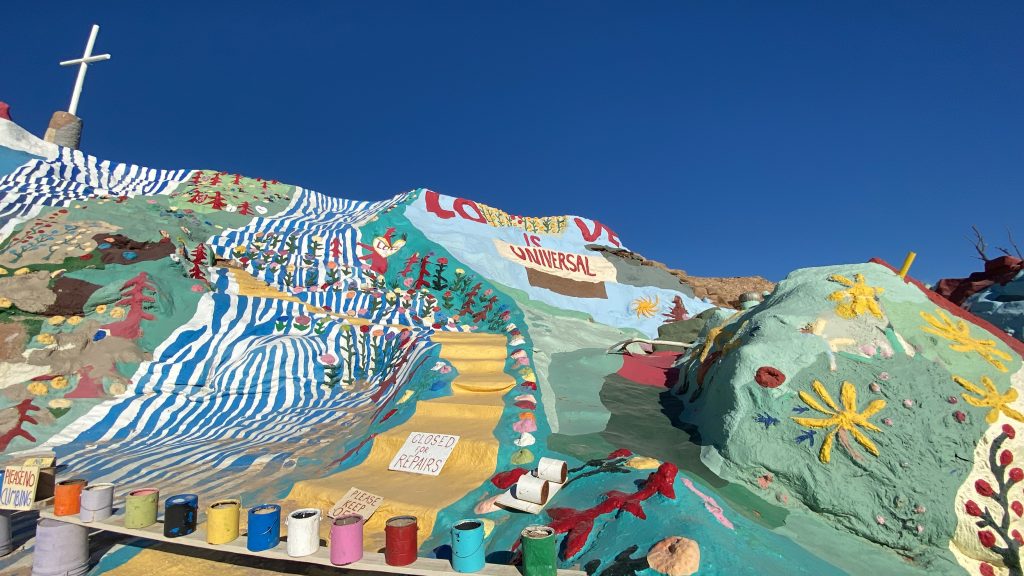
Located in the self-governing, off-the-grid colony called Slab City, Salvation Mountain is intentionally out of the way. Fresh water springs and abandoned military foundations provide the building blocks for the lawless community to survive. While the residents we met seemed nice enough, I’m not sure I’d want to be there alone or after dark. The dirt roads and parking lot are quasi-maintained and there are no services and very little cell signal. So, travel alertly, but don’t let the disclaimer dissuade you from visiting this wonderful work of art.
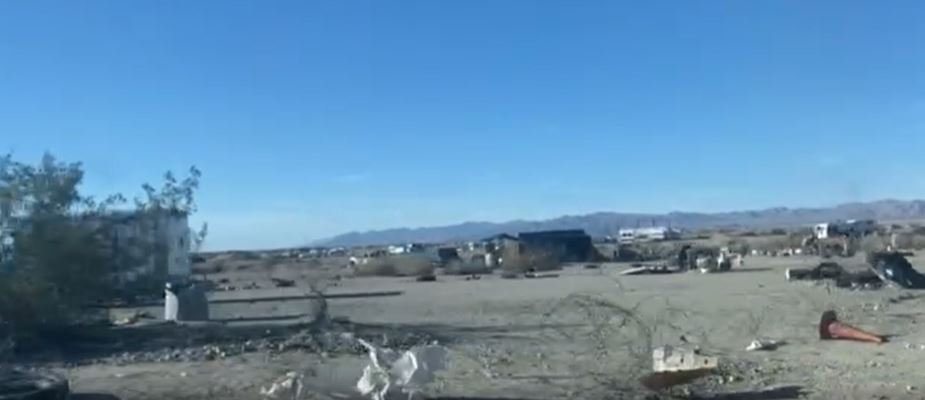
Taking a soak in the Fountain of Youth
Consisting mainly of retirees, the Fountain of Youth RV Resort was a nice place to hang for our weekend at the Salton Sea. Wide, flat sites on nicely graveled roads gave plenty of room for the kids to ride their bikes around camp. Our favorite resident was the tortoise at the end of the row who had the most amazing view of the entire valley at sunset.
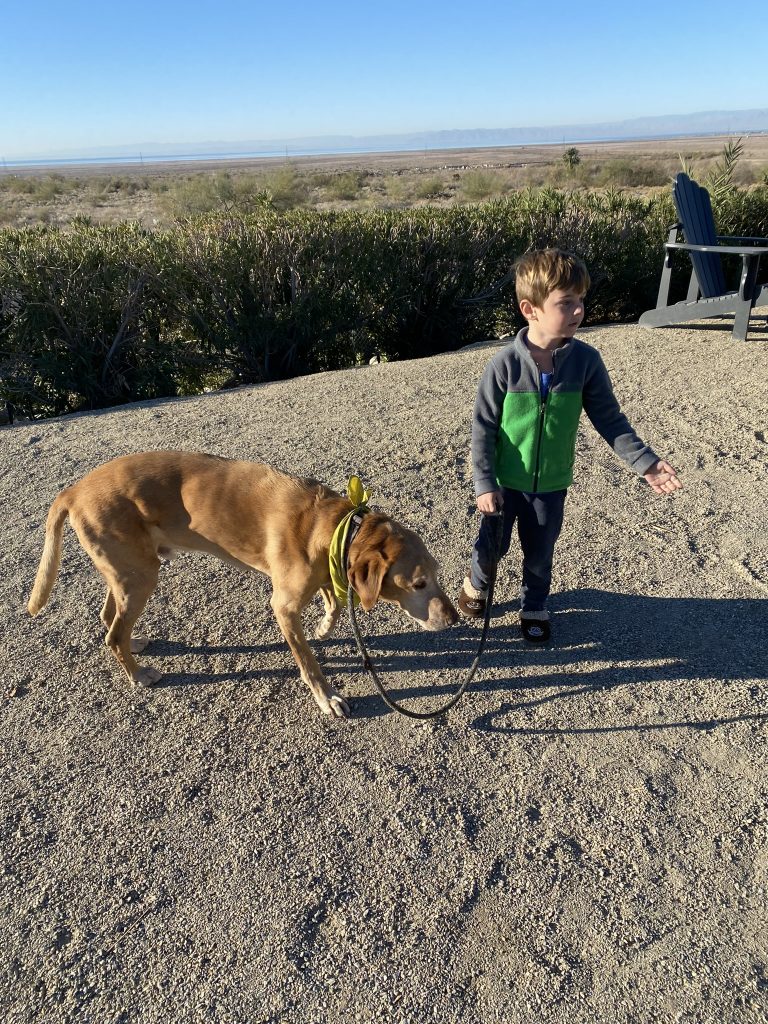
The real attractions here are the pools. Pouring 600 gallons of 131oF water every minute, the “Fountain of Youth” keeps everyone soaking comfortably year-round. We didn’t even last a minute in the “lobster pot” fed directly by the spring but found the regular spa to be quite relaxing.
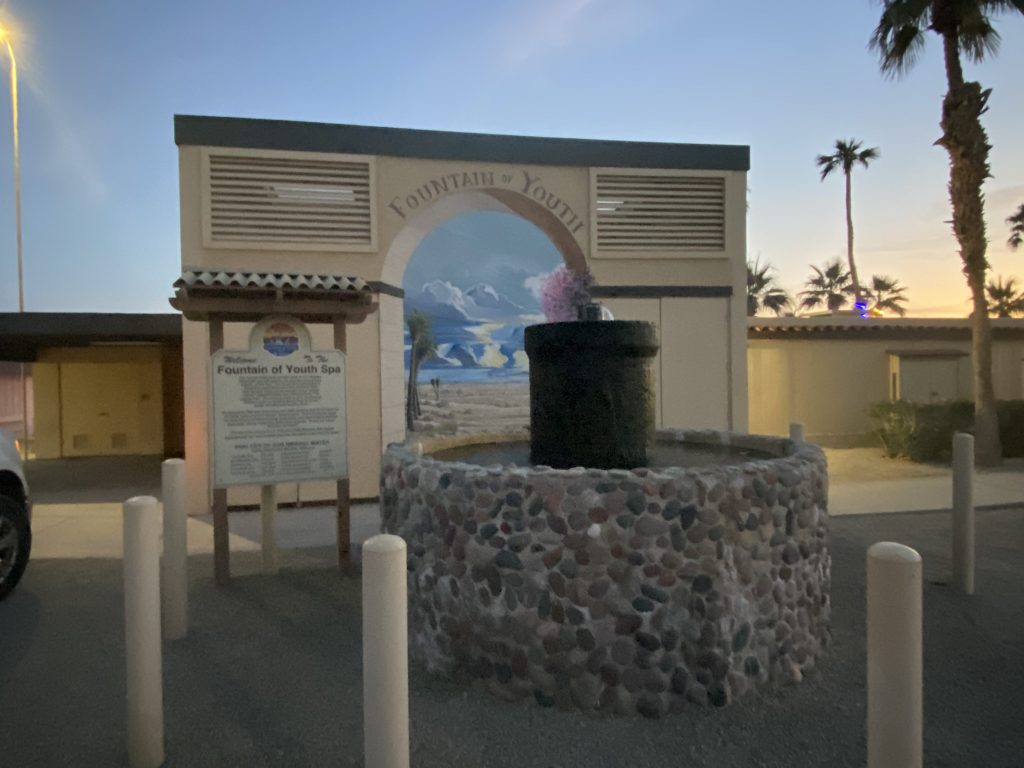
While not exclusive to adults, there were definitely a few residents who didn’t seem to enjoy the families that came to play in the pool each evening. Most, however, were super friendly and invited the us and the kids into conversations as we watched the sunsets surrounded by lit palm trees each night.
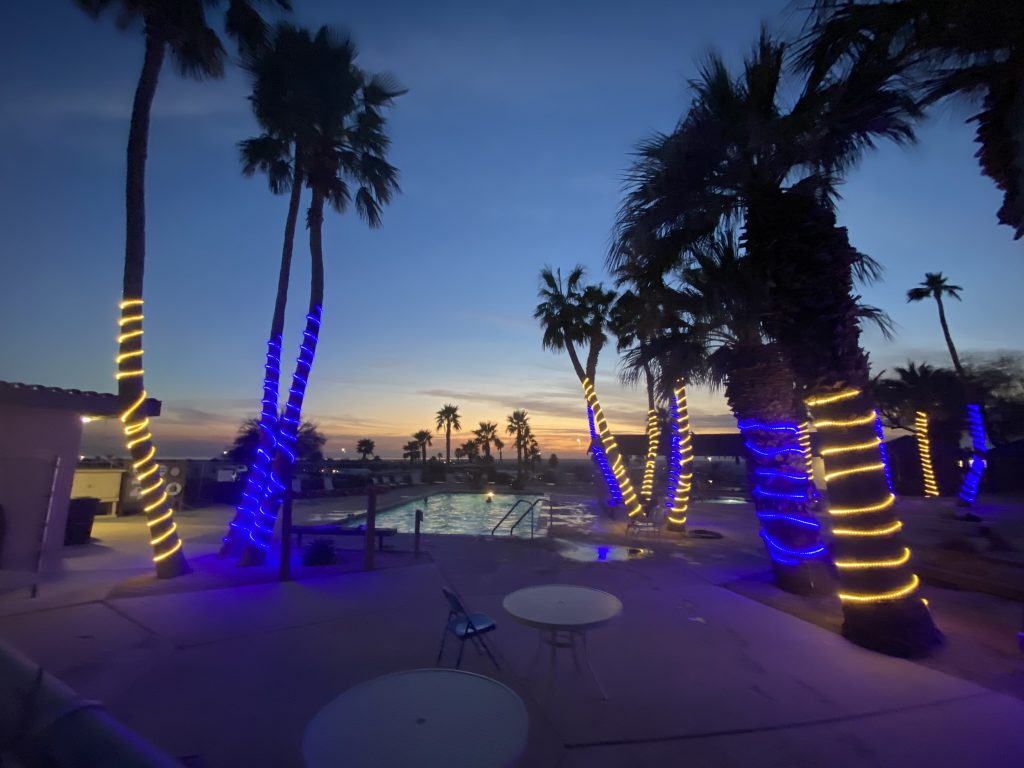
If checking out the eastern side of the Salton Sea is your destination, I definitely recommend a stay at the Fountain of Youth. However, the Imperial Valley is deceptively large. So, if you’re planning to visit Palm Springs, climb Ladder Canyon, explore Thousand Palms Oasis, tram to the top Mt. Jacinto or rock hop at Joshua Tree, I’d recommend the Joshua Tree KOA or camping in the National Park.
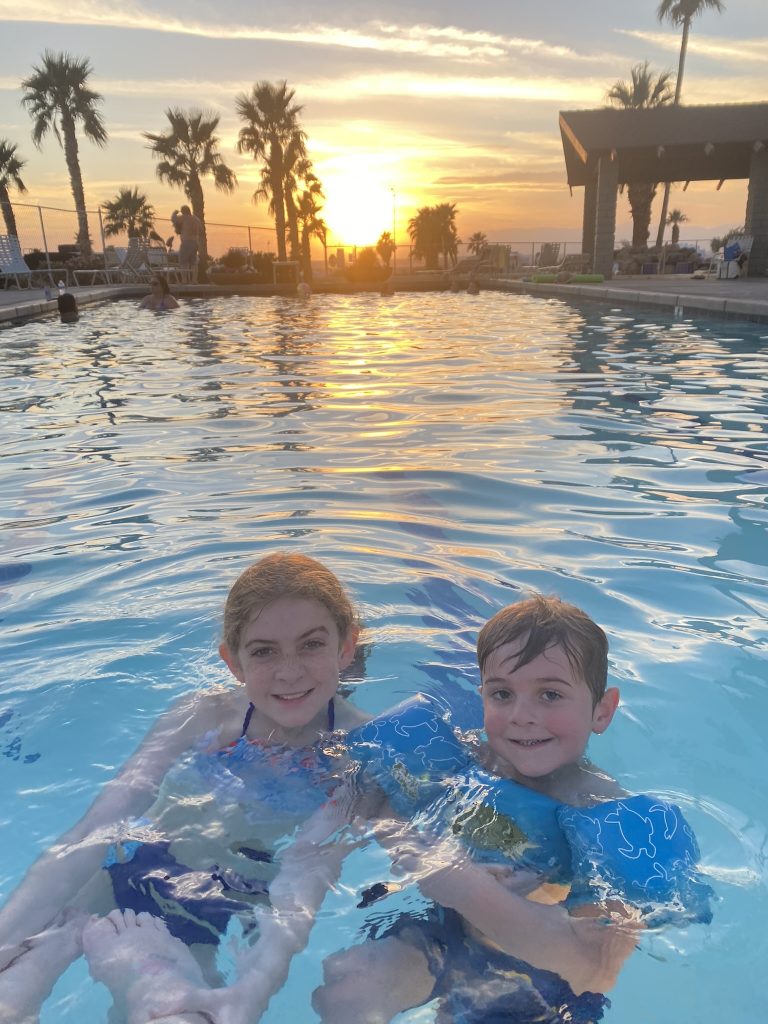
Missed Connections
We didn’t check out the southern or western areas of the Salton Sea on this trip, but next time we’re in the area here’s my bucket list:
- The city of Borrego Springswest of the sea is famous for its 130 giant metal sculptures.
- Just beyond Borrego lies the Anza-Borrego Desert State Park, home of a couple of very interesting looking hikes into Palm Canyon Oasis and Hellhole Palms (what’s in a name;)).
- The Sonny Bono Salton Sea National Wildlife Refuge boasts wetlands filled with migrating birds and the inactive Red Island Volcano.
- Mud pots fed by hot springs near the Wildlife Refuge are only accessible by 4WD, but who can resist some bubbling mud.
- We skipped the Dos Palmas Preserve this trip since we checked out the much larger (but also farther) Thousand Palms Oasis, but on a return trip, we’d totally hike this little gem.
- Closed during our visit, the International Banana Museum touts a gigantic collection of all things banana and making it a must see for a return trip.
- Lastly, I can’t miss mentioning how close it is to the Imperial Dunes (aka Glamis). We looked into renting a side-by-side for a day, but the rates were pretty steep, and we had lots of other adventures planned this time:)
- What did we miss? Tell us about your adventures at the Salton Sea!
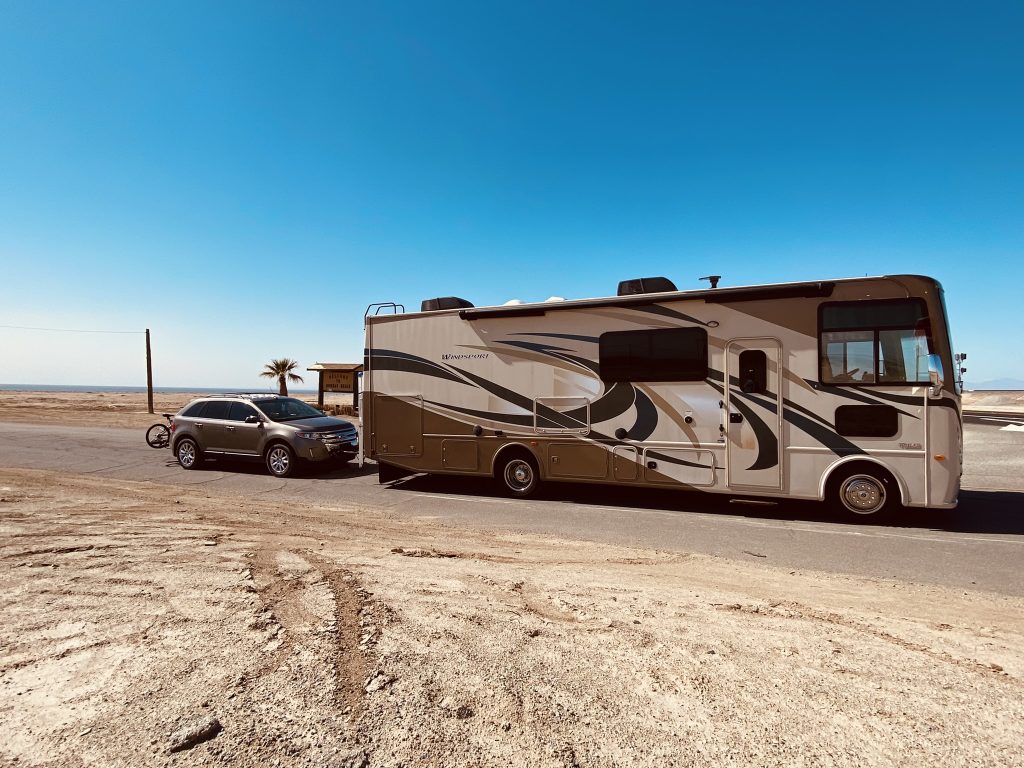


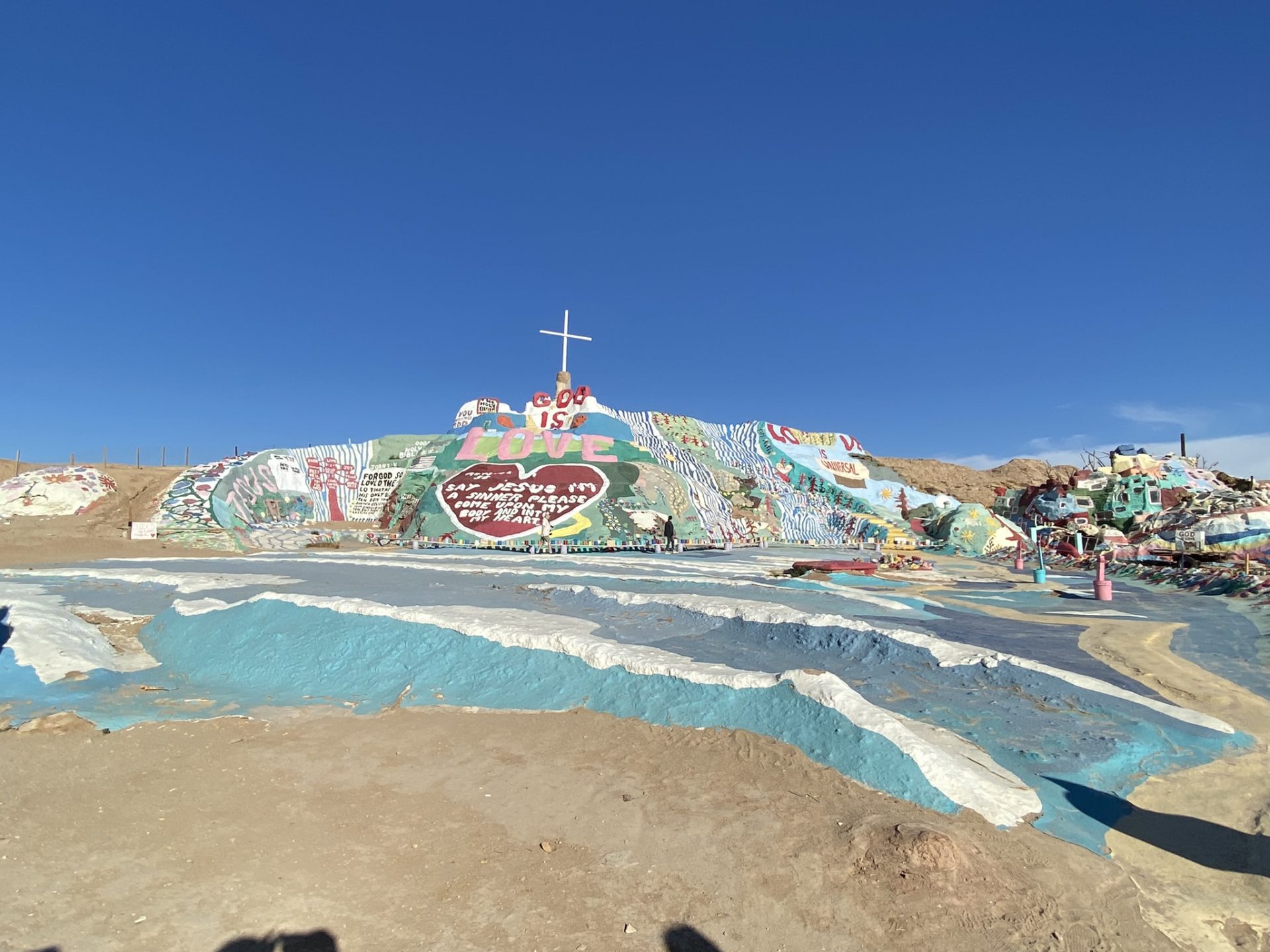
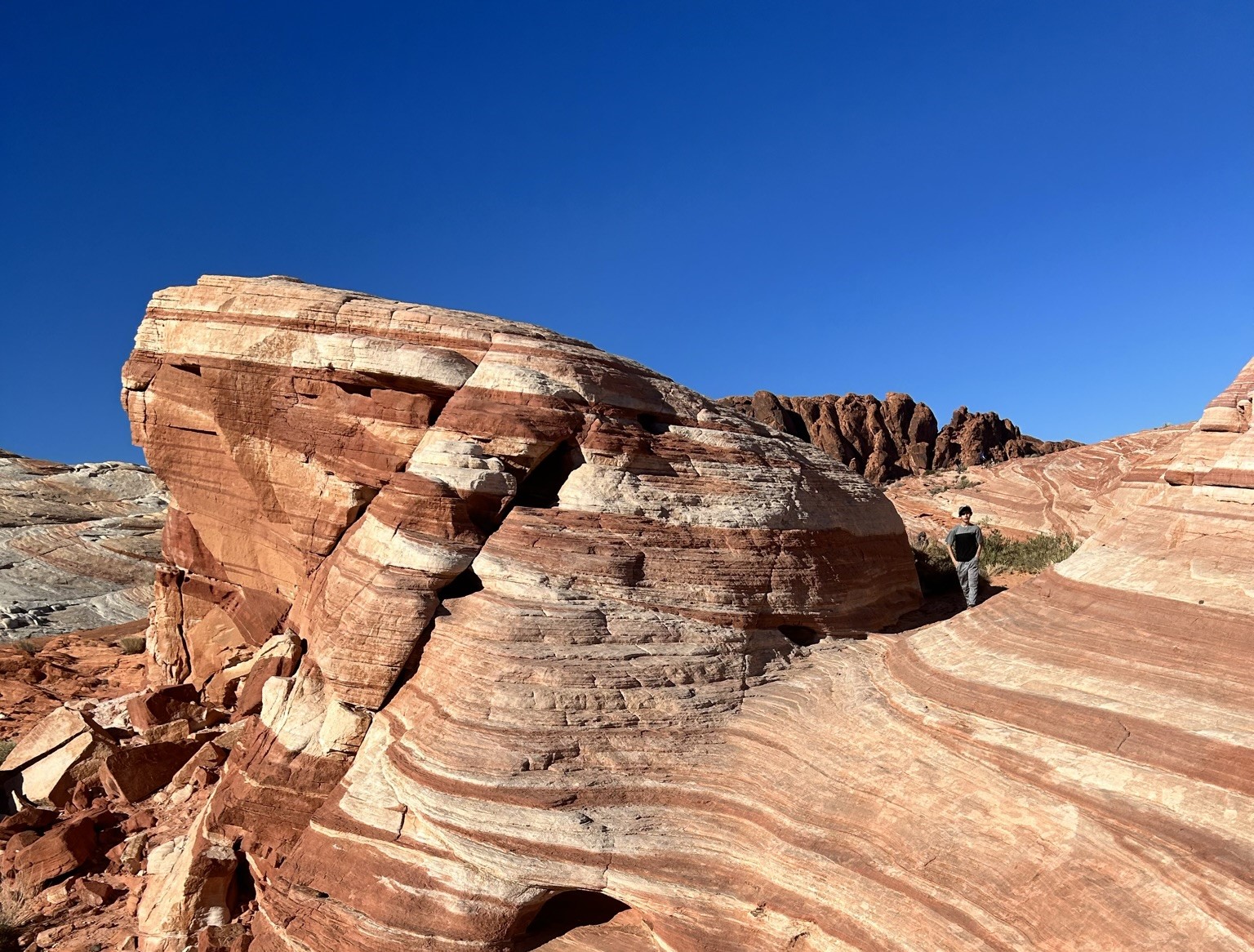
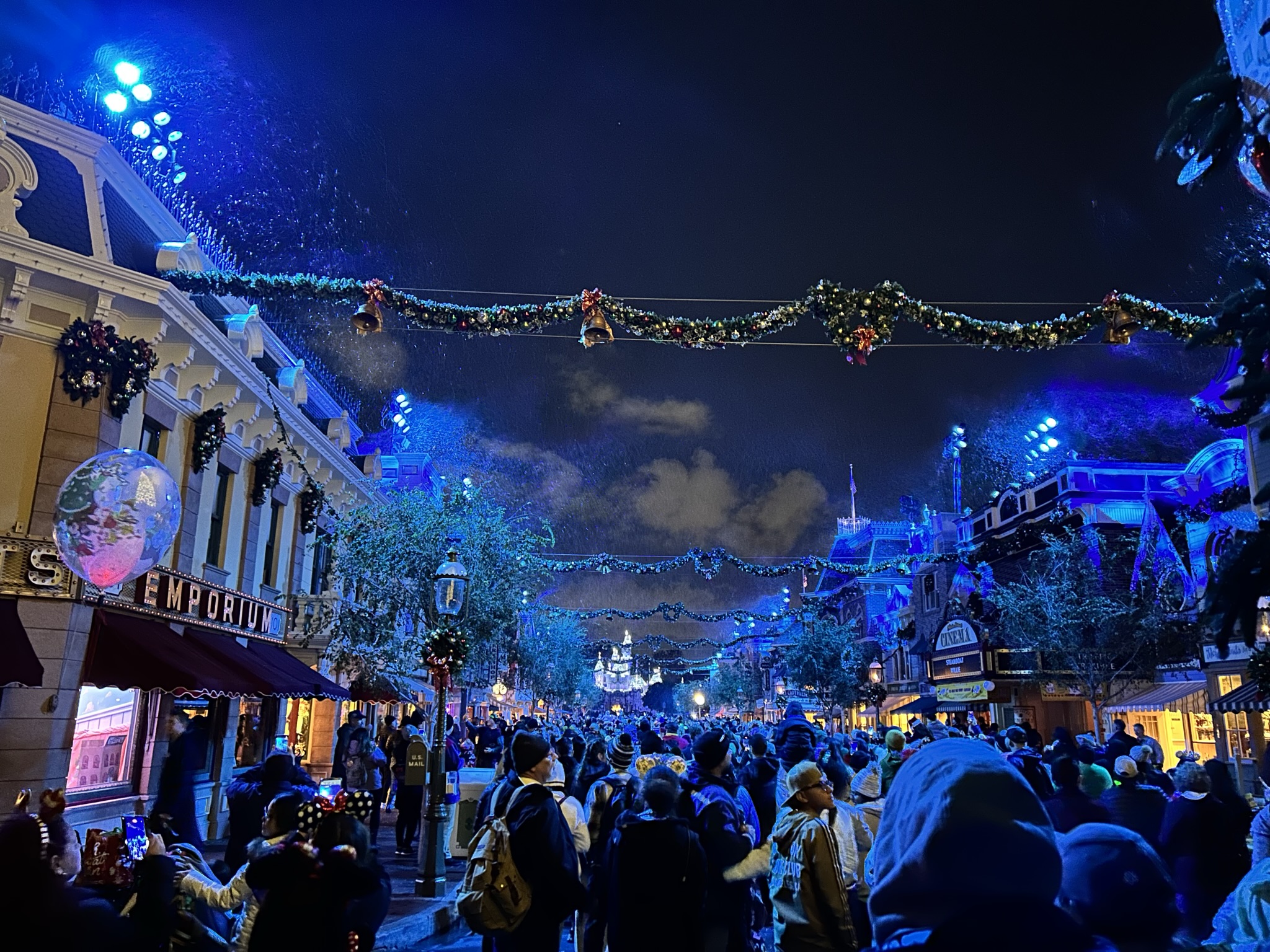
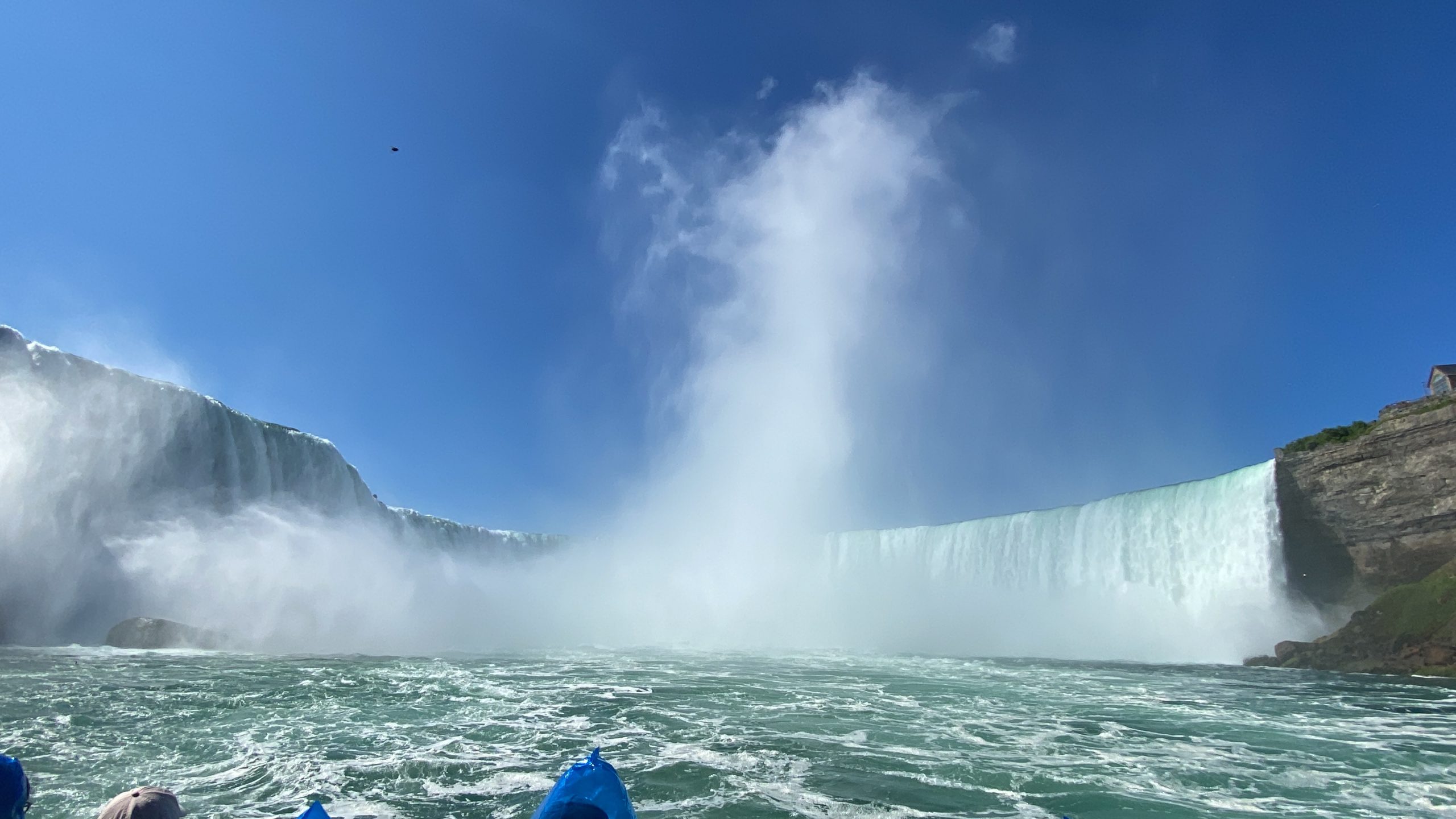
Leave a reply